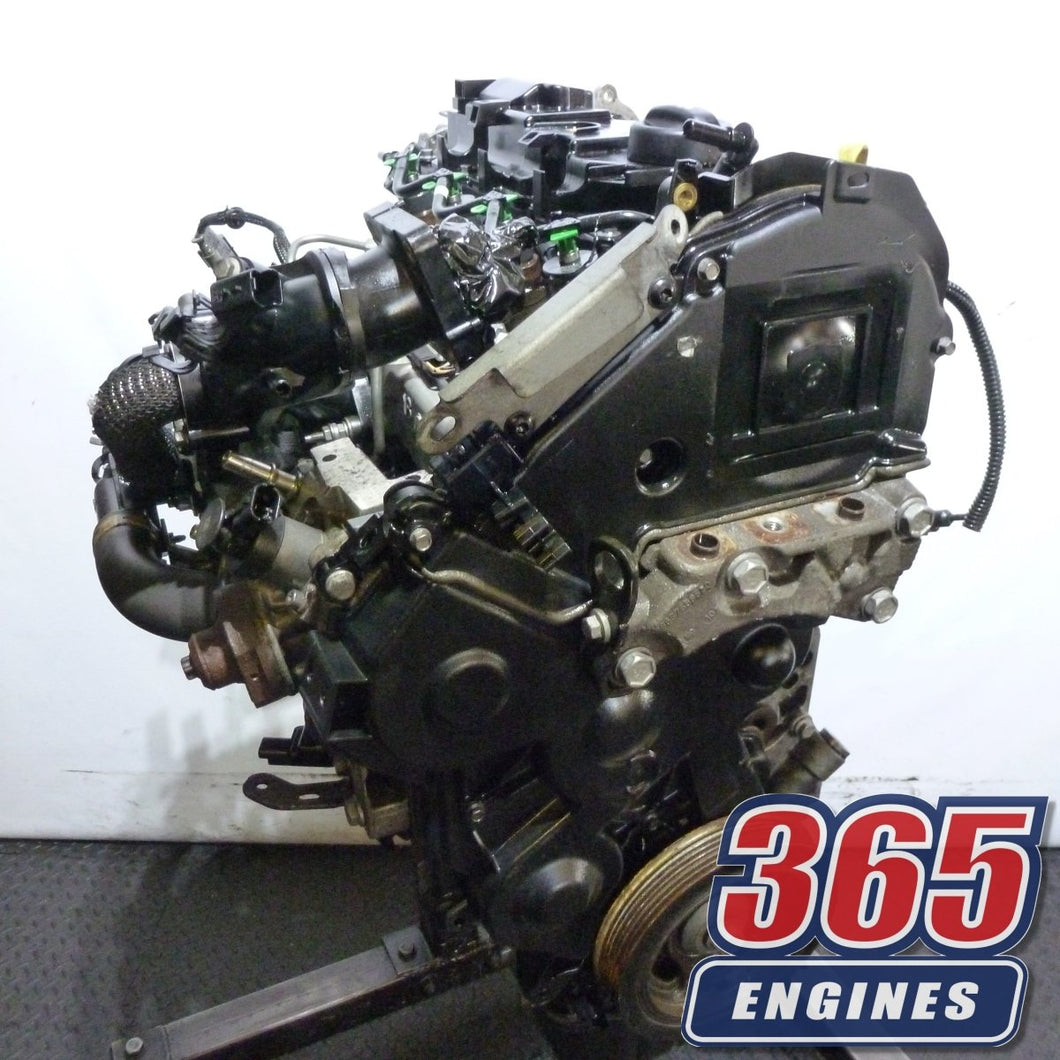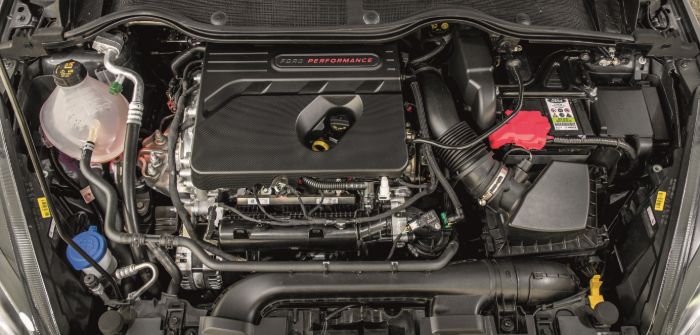Why Choosing the Right Ford Fiesta Engine Parts Matters for Longevity
Why Choosing the Right Ford Fiesta Engine Parts Matters for Longevity
Blog Article
The Future of Engines: Innovations Driving Lasting Power Solutions
As the vehicle industry navigates the necessary shift in the direction of sustainability, the future of engines is significantly specified by groundbreaking developments. Electric engine advancements, alongside encouraging growths in hydrogen fuel cells and biofuels, are improving the landscape of power options. The emergence of hybrid systems further complicates this development, presenting both challenges and possibilities to lower emissions successfully. Combined with the assimilation of fabricated knowledge in engine style, these technical strides elevate important questions about their long-lasting stability and impact on typical paradigms. What might this indicate for the industry and consumers alike?
Electric Engine Advancement
The development of electrical engine advancements signifies a crucial shift in the automotive and aerospace sectors, driven by the urgent requirement for sustainable alternatives to fossil fuels. This transition is characterized by significant developments in battery innovation, power electronics, and electric motor design, which jointly improve the performance and performance of electrical engines.
Recent technologies have caused the production of lighter, extra energy-dense batteries, such as lithium-silicon and solid-state batteries, which promise longer ranges and shorter charging times. Additionally, improvements in electric motor performance, such as making use of irreversible magnets and advanced cooling systems, allow electric engines to run properly under varying problems. These enhancements not only enhance car performance but also add to a reduction in overall power usage.
Furthermore, the combination of innovative software program formulas has actually enhanced energy monitoring in electrical lorries, allowing for regenerative stopping and anticipating charging approaches. As suppliers increasingly welcome electrical propulsion, the automobile and aerospace sectors are seeing a standard shift towards greener modern technologies. This development not only fulfills regulative demands however also lines up with consumer preferences for eco-friendly transport solutions, solidifying electrical engines as a cornerstone of future sustainable flexibility.
Developments in Biofuels
As the aerospace and vehicle industries significantly prioritize sustainable power sources, innovations in biofuels become a corresponding remedy to electric engines. Biofuels, stemmed from natural materials such as plants, waste, and algae, provide an innovative method for minimizing greenhouse gas discharges and reliance on fossil gas.
Recent study has concentrated on boosting the effectiveness and sustainability of biofuel production. Second-generation biofuels make use of non-food feedstocks, lessening competitors with food supply and reducing environmental effect. Improvements in artificial biology have actually allowed the design of microbes to produce biofuels a lot more efficiently, leading to greater yields and reduced production costs.
Furthermore, the development of drop-in biofuels permits smooth combination right into existing facilities, enabling a smoother shift for industries traditionally based on fossil gas. ford fiesta engine. These fuels can be used in present engines without alterations, promoting their fostering across numerous markets
Investments in biofuel innovation, together with supportive plans, are necessary to drive development and scalability. As the global area looks for to battle environment modification, biofuels use a practical, prompt solution that straightens with the overarching objective of sustainability in transportation and aeronautics.
Hydrogen Gas Cell Innovation
An expanding variety of business and scientists are checking out hydrogen fuel cell innovation as a sensible alternative to standard source of power in transportation and power systems. This technology transforms chemical energy from hydrogen right into electrical energy through an electrochemical response, with water as the only byproduct, making it an eco-friendly choice.
The core of hydrogen gas cells is the fuel cell stack, where hydrogen molecules are split into electrons and protons. The flow of electrons generates electrical power, while protons relocate through a membrane layer to incorporate with oxygen from the air, forming water. This procedure leads to high efficiency and reduced emissions, placing hydrogen fuel cells as a crucial gamer in the shift to sustainable power.
Significant advancements have been made in boosting the sturdiness and efficiency of gas cells, alongside lowering costs through ingenious manufacturing methods. The advancement of hydrogen this content production techniques, such as electrolysis powered by sustainable power sources, improves the sustainability of the general system. As facilities for hydrogen refueling expands and manufacturing methods end up being a lot more effective, hydrogen fuel cell modern technology holds my response great promise for decarbonizing numerous sectors, including sturdy transportation and fixed power generation.
Crossbreed Systems and Their Influence
Hybrid systems stand for a significant advancement in lasting engine technology, merging conventional interior combustion engines with electric propulsion to optimize energy effectiveness and reduce emissions (ford fiesta engine). This double method enables vehicles to use both source of power, allowing better adaptability in energy consumption and minimizing dependence on nonrenewable fuel sources

In enhancement to ecological benefits, crossbreed systems offer customers a feasible shift in the direction of totally electrical automobiles. They minimize variety anxiety by incorporating the comfort of gasoline with the benefits of electric propulsion, making them an eye-catching choice for a wider target market.
The Function of AI in Engine Layout
Leveraging sophisticated formulas and machine discovering techniques, the automotive industry is significantly incorporating synthetic knowledge (AI) into engine design procedures. AI enhances the performance and performance of layout by examining substantial datasets to identify optimal configurations and performance criteria. This capability permits designers to simulate different operating conditions and forecast engine behavior under numerous situations, considerably decreasing the moment and price related to conventional prototyping approaches.
Furthermore, AI facilitates the development of advanced products and burning procedures customized for sustainability. By maximizing fuel efficiency and decreasing exhausts, AI-driven layouts align with worldwide initiatives targeted at minimizing the carbon impact of automobile engines. Maker discovering algorithms can likewise anticipate link upkeep requirements, leading to improved integrity and long life of engine elements.
Additionally, AI contributes in the integration of electrification technologies, such as hybrid systems, where it can maximize battery management and power recuperation procedures. As the industry moves towards even more sustainable power services, the duty of AI in engine design becomes increasingly crucial, driving technology and enhancing the performance of future engines. Eventually, the collaboration in between AI and engine style proclaims a brand-new period of smarter, cleaner, and more reliable automotive modern technologies.

Conclusion
In conclusion, the future of engines is being formed by a convergence of ingenious technologies that prioritize sustainability. Electric engine advancements, biofuel developments, hydrogen fuel cells, and hybrid systems jointly add to a substantial reduction in emissions and environmental impact. Furthermore, the combination of fabricated intelligence in engine style improves effectiveness and efficiency. These transformative solutions underscore a commitment to developing a cleaner, extra sustainable automotive landscape, eventually benefiting both society and the environment.
Electric engine advancements, alongside appealing advancements in hydrogen gas cells and biofuels, are improving the landscape of power services. In addition, enhancements in electric motor efficiency, such as the use of irreversible magnets and progressed cooling down systems, make it possible for electric engines to operate successfully under varying conditions. By optimizing gas effectiveness and lessening exhausts, AI-driven styles line up with global campaigns aimed at decreasing the carbon impact of automotive engines. As the market moves towards more lasting power solutions, the function of AI in engine design comes to be significantly crucial, driving advancement and improving the performance of future engines. Electric engine innovations, biofuel growths, hydrogen fuel cells, and crossbreed systems collectively contribute to a significant reduction in discharges and ecological impact.
Report this page